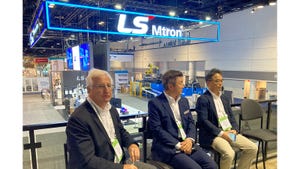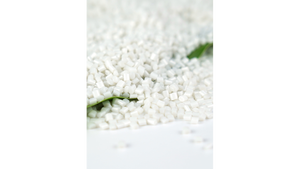Dragon economy fueling expansion for Rosti
January 1, 2007
One of Europe’s largest technical-parts injection molders and assemblers, Rosti established its first manufacturing capacity in China in 2001 and has not looked back since.
|
This month the firm starts operations in its third facility in the Suzhou Industrial Park, about an hour’s drive from Shanghai. Pat Williams, a 19-year Rosti employee who has spent the last four of those in China, manages the firm’s operations there.
“The [first] plant was set up initially for Sony Ericsson. But that fell through when the bottom fell out of the mobile phones market—so we had to find new customers.” The first was one of Rosti’s global customers, NCR (National Cash Register), Williams recalls, “who needed production in China to support their operations in Beijing.”
Rosti is both a Tier One and Tier Two supplier for the business machine market. Large projects include molding and assembling about 2500 paper-feed modules per week for Xerox. In China, NCR and Xerox are its top two customers but the firm is increasing its exposure to the growing Chinese automotive systems supplier market to take advantage of new opportunities for expansion in that industry. Last year Rosti’s Chinese operations earned its TS 16949:2002 automotive norm certification.
Williams emphasizes that Rosti’s China operations have not only created a viable cost-down alternative for the transfer of work from higher-cost regions, but that they have also generated significant new business in their own right. Indeed, the new facility includes about 30% more manufacturing space than originally planned due to three new contracts received last year, totaling about $20 million/yr in new business.
Tooling efficiency and flexibility key to growth
“As a traditional obstacle to relocating [manufacturing] programs here,” says Williams, “toolmaking was a key priority for us in establishing Rosti’s presence in Suzhou. We knew we had to make tools and qualify them here.” In fact, Rosti’s China operations play a big part in sourcing tooling for the entire group; some 326 molds were sourced in 2005, primarily through a handful of Korean- and Taiwanese-owned moldmakers, all with operations near Suzhou. “Sourcing and managing the supply chain is integral to our flexibility,” explains Williams. To now the firm has avoided using lower-quality local steel, requiring its suppliers to import and then heat-treat steel.
Rosti’s focus on offering fully integrated manufacturing capabilities is evident. Among skills the processor brings to its customers in China are multicomponent injection molding, gas injection molding, and robot-controlled painting, where capacity ranges between 5000-15,000 parts/hr, depending on the component.
Rosti Suzhou’s current injection molding stable includes 36 Demag Plastics Group machines, ranging from 35-800 tonnes of clamp force. And with current investment and production plans taken into account, this will increase to 50 machines by Q2 of this year. Operations in China are run very similarly to those in Europe and North America, emphasizes Williams. All molding machines have robots mounted and in use, and a single operator, who will typically work a four-day week with 12-hour shifts as standard, usually has responsibility for four machines. The firm has some 600-700 molds in its Chinese inventory, and processes a wide variety of engineering thermoplastics.
Investing in skills and training
With a population of seven million, Suzhou is booming, and supplies more than 6700 university graduates and more than 30,000 senior professional and other graduates to the region’s businesses each year. U.S., German, French, and other international flags fly high above many of the large, new buildings, and the local economy has grown at an average rate of 15% annually for the past 20 years.
Rosti has more than 450 employees in China, with Williams one of just three expatriates. “Our focus on employee training serves both as a self-improvement tool and as a route to motivating and retaining employees,” he says.
Human resources manager Helen Yao, Rosti’s first local hire in China, says the plastic processor’s training program is devised to help employees throughout their careers. And standards are high: employees may be subjected to as many as nine rounds of interviews before securing a position. “We had more than 200 applicants from the local technical college [in 2006]—we hired two,” says Yao.
Rosti’s training programs comprehensively reflect the variety of opportunities available, from technical and operator training, to helping prepare technical staff for leadership positions, as well as those created to help midlevel managers make the transition into the higher ranks. “Despite the very high number of graduates in the market locally, it can be difficult to find the right people for the right jobs,” explains Yao, “and we have found it preferable to develop employee skills in-house.”
Physical expansion
The new Suzhou Alpha site, located about 10 minutes from the firm’s original Chinese facility, Suzhou 1, has 13,000m2 of space for both molding and assembly. Williams says the facility initially houses some 25 molding machines—and while the Suzhou 1 facility will remain, Suzhou 2 (currently only assembly) and Suzhou 3 (a rented warehouse) will be closed.
Longer-term, Suzhou Alpha will become the firm’s local headquarters. The Suzhou 1 site will retain around 20 molding machines and the company’s paint facilities, with the focus on molding and assembly for automotive and high-precision parts. The new Suzhou Alpha site is dedicated to Rosti’s business machines and domestic appliances contracts, while also creating additional capacity for the growing automotive business.—[email protected]
You May Also Like





